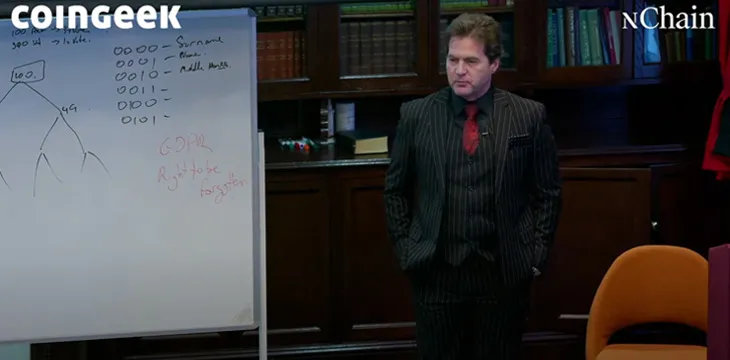|
Getting your Trinity Audio player ready...
|
Does the idea of a digital identity for everyone fill you with dread? Like it or not, it seems inevitable at this stage. Rather than fighting the whole notion, the better option is to create digital ID standards that offer built-in privacy protections along with “convenience.” These are the concluding thoughts from The Bitcoin Masterclasses with Dr. Craig S. Wright, as participants share their thoughts.
The final session of the Bitcoin Masterclass series wraps up the event with an audience discussion and Q&A about the nature of privacy and identity. What attributes should a digital ID include? When would you use it, and how/why would it be beneficial to keep parts of that information private? The discussion later broadens to issues of freedom and free speech, the purpose of these things, why context and circumstances matter, and most importantly, how do you have reliable checks on information access in an era where everything is recorded and stored.
One participant jokingly suggests a digital ID should contain such unique attributes as birthmarks and tattoos, your IQ, a social credit score for tax breaks, and political causes you support. He also asks whether Bitcoin’s “small blockers” should pay extra taxes, and Dr. Wright points out they already do every time they make a BTC transaction.
These comments are in jest (we hope), but at the same time, there are definitely forces out there who’d love to throw as much granular data about you and your lifestyle choices into a digital ID system as they can. And probably not to your benefit.
This raises the question of how much personal information we’ve been voluntarily supplying to technology/government behemoths for years and what it’s all for. Dr. Wright says:
“If you listen to any Silicon Valley companies at the moment, they’ll call me the antichrist. There’s a reason. How do they make money? Data is the new oil. I’m telling you: you own your own data. Don’t give it to them.”
Google (NASDAQ: GOOGL), Facebook (NASDAQ: META), Palantir—those companies exist solely for sucking out your data and (especially in the latter case) giving it to the NSA. If you don’t have a problem with that, then that’s your choice. But you can choose not to give it to them.
“What we’re discovering is, it all comes down to implementation,” Dr. Wright states. It’s not a technology thing that already exists.
Bitcoin and blockchain are improvements to digital certification security that already exists. But using blockchain can protect us by keeping the information in compartments, tokenized, and with access determined by time and necessity. As we’ve seen recently, there are those pushing for the panopticon model—everything you do can be seen at any time, and you never know who’s paying attention. Digital surveillance makes it far easier for anyone to pay attention if they want. But is the answer to store no data at all?
Advocating to store nothing is probably a lost cause at this stage. Instead, we should advocate for a system like scalable Bitcoin. The blockchain can store everything, but it also favors protecting individual rights and privacy.
“The world is complex. There aren’t any simple solutions to this. It’s going to require differences in what governments want,” Dr. Wright notes.
He says the current system of multiple sovereign governments is still the preferable option. The alternatives are either no government or, worse, the World Economic Forum’s idea of one big global government.
“If that happens, I’ll join up with Elon Musk and go to Mars. Looks more attractive. I know there’s no air there, but it’s still probably better than here with one world government,” he remarks.
Watch: The Bitcoin Masterclasses with Craig Wright: Confidentiality, Privacy, Anonymity, Party to Party

 07-14-2025
07-14-2025 





